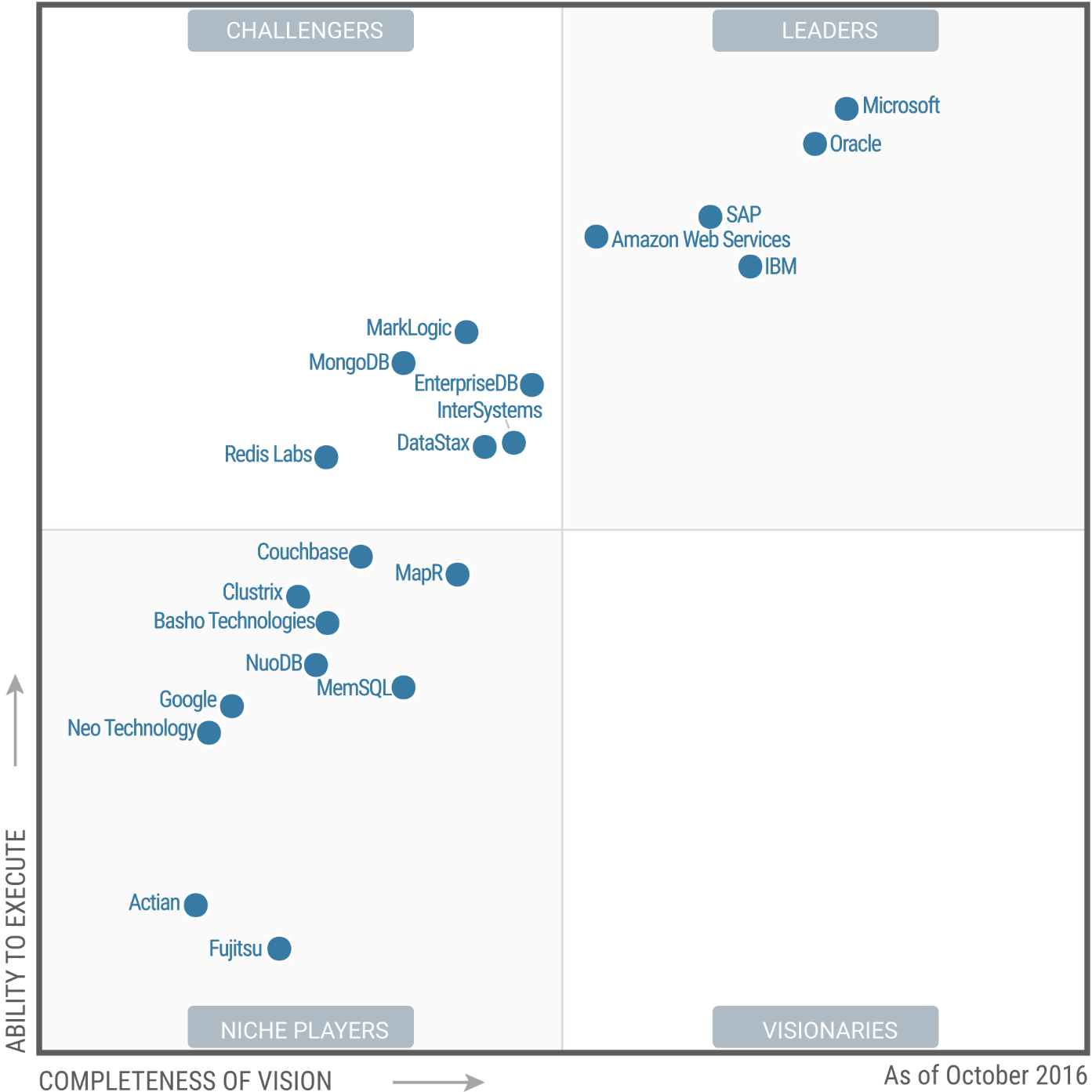TEC 5323 Advanced Database Technology
A Brief History of Oracle (Updated May 2019) The concept of relational database was first introduced around 1970 by Dr. Edgar F. Codd in an IBM research publication entitled "System 4R Relational." Initially, it was not clear if any system based upon the concept had any commercial significance. Nevertheless, Relational Software, Incorporated (RSI) was founded in 1979 by three young engineers and released Oracle v2 as the world's first relational database. The first major customer was Central Intelligence Agency (CIA). In 1983, RSI was renamed Oracle Corporation to avoid confusion with a competitor named RTI, and to better streamline the product offerings. At this time, the developers made a critical decision to create a portable version of Oracle (Version 3) that ran not only on Digital VAX/VMS systems (very popular systems then), but also on UNIX and other platforms. By 1985, Oracle claimed the ability to run on more than 30 platforms, with more than 1000 relational database customer sites. Oracle was able to leverage and accelerate the growth of minicomputers and UNIX servers in the 1980s. Today, Oracle takes advantages of all major platforms including Windows NT/2000, Sun Solaris UNIX, HP UNIX, Compaq UNIX, IBM AIX and Linux. Oracle capitalizes many innovative technical features to the database as computing and development models changed, for example, from offering the first distributed database to the first Java Virtual Machine in the core database engine. The following table list a brief history of Oracle's major technological introduction.
The above was cited from an article "25 Years of Technology Innovation" on Oracle Magazine. The following was updated by the instructor for this course:
Database Management Systems (DBMS) Market Share Oracle database technology can be found in nearly every industry around the world--including large corporations, shipyards, factories, warehouses, online banking, and scientific research institutions. The following table lists the database market share up to May 2001 (by IDC):
As of 2015, Oracle remained as a top player in the database market as identified by Gartner, in the following figure:
Source: "Magic Quadrant for Operational Database Management Systems", Gartner, https://www.gartner.com/doc/reprints?id=1-2PMFPEN&ct=151013&st=sb, accessed on May 11, 2016. As of March 7, 2017, this source is expired from Gartner web site. Nonetheless, it is a good reference in terms of market shares. Off the Subject:Working at computers will help prevent the following incidence happen to us too soon: Bill and Sarah were starting to have memory trouble, so they developed the habit of writing things down. One day Sarah said to Bill, "Would you mind getting me some ice cream?" "No problem," Bill said, heading to the kitchen. "You'd better write it down or you'll forget," Sarah called after him. "No, I won't," Bill replied. "It's ice cream. How hard can it be to remember that?" A few minutes later Bill walked back into the living room carrying a tray with eggs, coffee, cereal and orange juice. Sarah sighed. "Bill, I told you to write it down," she said. "Now look--you've forgotten the toast." --From Reader's Digest, January 2002, pp115-116 |
